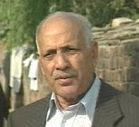| Sat. July 05, 2025 | |

|
|
|
Will Taliban terror proliferate eastward after the US drawdown in 2014? Strategists vigorously debate the proposition. Only the Indian print media has given it high importance. What actually stimulates the Indian press to cry wolf? It is not Taliban intrepidity: it is the split personality and inconsistency of ordinary Kashmiris serving as stimulants, thanks to their euphoric response to Pakistan’s charade. Who are the ‘Taliban’ we are talking about? There are two; the Afghan Taliban based in Afghanistan and the Tehreek-i-Taliban-e Pakistan (TTP) based in Pakistan. Both are essentially motivated by religious conservatism. But there are other specificities. The Taliban of Afghanistan sprang from the corpus of disbanded mujahideen soon after the Soviets exited and power passed into their hands in Kabul. When the threat to national sovereignty receded, the country fell into a state of anarchy. Afghan commanders and their legions took to loot and rapine. Realising that lawlessness of disbanded mujahideen could pose serious threat to its influence, the Pakistani Inter-Services Intelligence (ISI), after taking the US on board, launched the Taliban movement in Southern Afghanistan through the instrument of senior Taliban leaders, mostly the alumni of Karachi Sunni Wahhabi religious seminaries. The Afghan Taliban primarily battle for the expulsion of foreign troops (e.g., US, NATO) from Afghan soil. Thereafter they intend announcing the Islamic Emirate of Afghanistan, where the chief executive (Emir) will not be an elected but selected, based on his qualifications as a warrior of distinction and his orthodox Islamic credentials for promulgating Islamic law, meaning the sharia. The TTP is a conglomerate of many fanatical and fascist groups. LeT, JM, HuM and many Al(s) and Hizb(s). etc. are its components. Two perceptions bind these groups together. One is the perceived threat from the west, whose scientific and technological advancement shatters the Islamic belief in scriptural finality. The second is the self-reassuring belief in Islam’s spiritual and physical domination of the entire world at the “end of the time”. According to the mentors of jihadis the end of the time has come. Hence the belief becomes the engine of jihadism. 9/11 is seen in the same spirit. However, in making a show of adherence to these two concepts, the Islamists have exposed themselves to the anger and spite of the western world and global democracies. The question is how far are the TTP is poised to embark on the Caliphate adventure? That also leads to answer the question of their armed adventure in Kashmir. The bombast of LeT or JM or HuM and other outfits ensconcing takeover of Kashmir is not a new thing. This is their avowed agenda. They have revived the Alamut story. The question is, will the TTP shift the goalpost from taking on the Pakistan army and administration to broader armed intervention in Kashmir? In order to create the Islamic Caliphate, the first step has to be demolishing the Islamic Republic of Pakistan. Note that Nawaz Sharif was elected Prime Minister and not selected Emir. A struggle for radical takeover of Pakistan State would be neither easy nor imminent. The fight of the TTP ultimately boils down to prolonged armed confrontation between the feudal-General combine on one hand and Theo-fascists posing as fidayeen on the other. To make a dent into this camaraderie, the strategy employed by the TTP is to indoctrinate vulnerable sections among the other ranks of the Pakistan Army and younger official cadres with seminarian orientation. They expect deep internal discord in the Pakistan army, leading to a situation akin to mutiny by the men in olive green. To counter this, the Army may have to abandon its Kashmiri mantra that has been steadily slipping out of its hands in the aftermath of Arab Spring. But a TTP intensified challenge to the elected government in Islamabad means opening another front. Is the TTP tactically prepared for that? It knows that the collapse of Army, with sturdy clout in the Pentagon, also means collapse of civil administration. Appointment of pro-Nawaz Army Chief could mean a subtle attempt of the elected government to offer an olive branch to the TTP. It is yet premature to anticipate its result. To divert the threat posed to the Islamabad regime and the army, both the Pakistan army and the hawks in Islamabad would very much like the home-grown Islamic fascists to head towards Kashmir in larger numbers, and in the process, get decimated in a prolonged conflict with the Indian regulars. The question is whether that suicidal strategy serves the grandiose ambition of Islamic Caliphate extending from the Dardanelles to the Straits of Malacca, as envisaged by the TTP. The scenario presented is a long drawn process and nothing can happen overnight. In other words, there is no immediate possibility of disengagement of the TTP from its agenda of first fomenting rebellion in Pakistan army, slashing its strike power and then taking on the hegemonic feudal lords. Once they have fulfilled that agenda, they would be free to move to Kashmir conundrum. We do not find any warm response from the Afghan Taliban to the TTP, who had offered to fight for them in Afghanistan. The Taliban are engaged in bi-polar negotiations with the US and the regime in Kabul. Islamabad will give no leverage to the TTP as negotiations with the Taliban proceed. Even any peace deal between the Army and the TTP will be limited to suspension of hostility in some sectors of Waziristan. In conclusion, the TTP is beset with a host of serious internal problems. These hardly leave them space for extended incursions eastward. However, sporadic border skirmishes cannot be ruled out. Kashi N. Pandit is the former Director of the Centre for Central Asian studies, Kashmir University, India
|
|
| Contact Us | About Us | Donate | Terms & Conditions |
|
All Rights Reserved. Copyright 2002 - 2025

